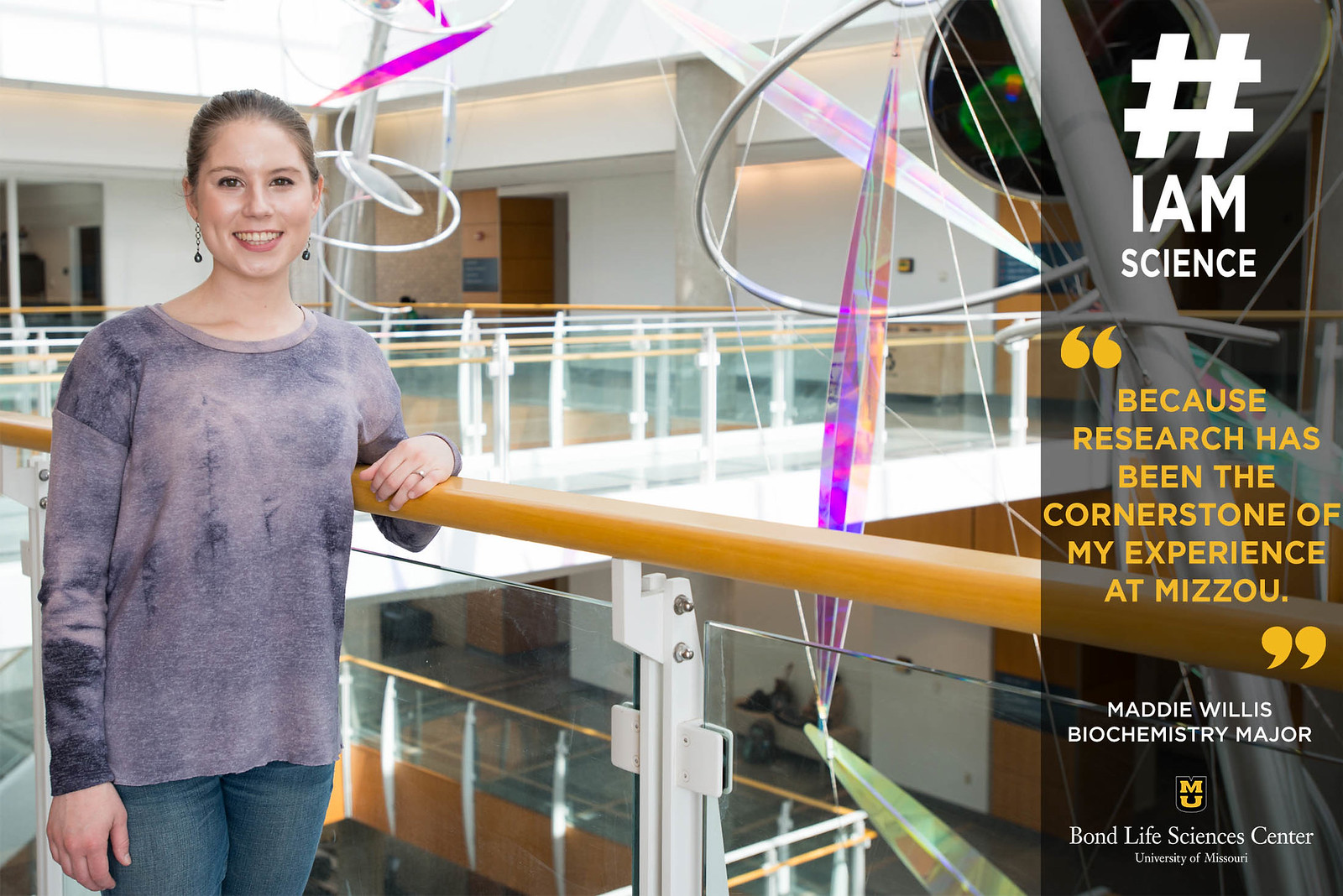
By Allison Scott | Bond Life Sciences Center
Setting a routine makes everything easier. However, changes to a set routine often leads to complications.
For Maddie Willis, a senior biochemistry major, that change came in the form of working in different labs and learning their unique styles and areas of emphasis. She started in Lori Eggert’s lab freshman year and switched into Frank Schmidt’s lab for the next two years before changing labs a final time for her last year at Mizzou.
“I got involved in research as a freshman [in Eggert’s lab] through the Honors College Discovery Fellows program,” Willis said. “Then when Professor Schmidt retired, he recommended I look into Donald Burke’s lab.”
In Burke’s lab, she works with ribonucleic acid (RNA) aptamers — artificial RNA molecules that bind a particular target. Aptamers can be used for synthetic biology applications, molecular therapies and to investigate origin of life questions.
Willis works on the latter of the three questions and is characterizing features of an RNA aptamer that can discriminate between the two redox states of Flavin adenine dinucleotide (FAD) — a nucleotide cofactor that appears along with many others in modern metabolism. It has been hypothesized that they are holdovers from an RNA world, when RNA catalyzed prebiotic reactions before being replaced by protein enzymes.
“It’s unprecedented that we found an aptamer that can do that, because it’s such a minor change to the molecule,” Willis said. “I’m doing a reselection, allowing mutations to find out what still binds FAD, to find what’s important.”
Willis’ work is more in touch with human nature than anything else. If the aptamer can change the redox potential of bound FAD, it could potentially enable redox chemistry, which is essential for life.
“To an extent, we’re never going to be able to answer what actually happened at a molecular level billions of years ago,” Willis said. “My project, however, helps humanity to learn about where we came from.”
While the project doesn’t have immediate applications, its implications are significant.
“There are huge advances that come from basic research that no one could’ve anticipated, so it’s important to do,” Willis said.
After she graduates in May, Willis is looking to work in industry for a few years before attending graduate school.
“I had an internship last year, and I learned a lot,” Willis said. “I want to get real-world experience before pursuing more education.”
When she’s not in the lab working with RNA, Willis serves as an undergraduate research ambassador for the university.
“We support the office of undergraduate research by talking to students about research opportunities throughout campus,” Willis said.
It’s no secret that Willis has benefited from her time in the lab, so it makes sense she jumped at the opportunity to help others find their place too. In fact, it’s something that has rounded out her college career.
“Research has been the cornerstone of my experience at Mizzou,” Willis said. “Helping people find that is rewarding.”

